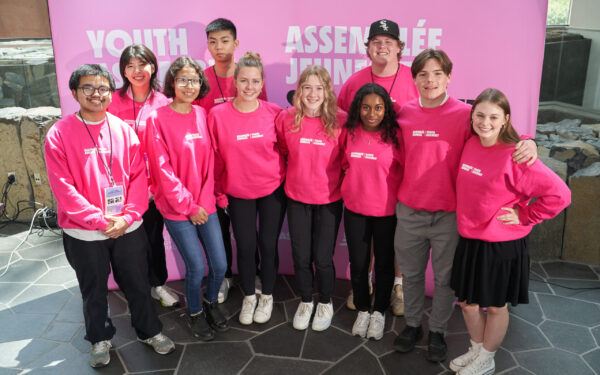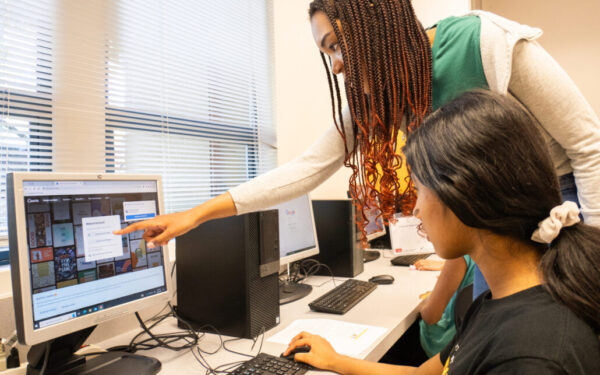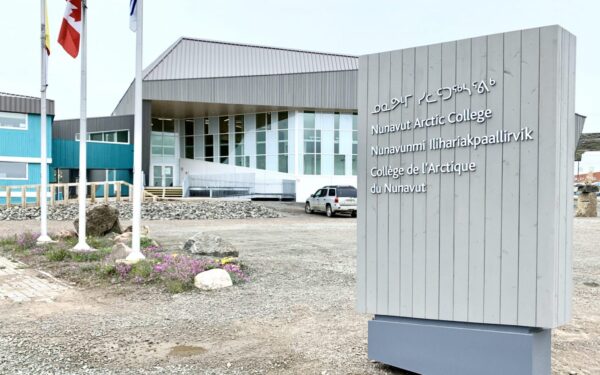From Chromebooks in the classroom, to sharing content with friends on TikTok and streaming video games on Twitch, Canadian children today have unprecedented access to information, entertainment and social interaction online. And yet, the internet comes with significant risks. When researchers at the Centre for Media, Technology and Democracy at McGill University applied for a CIRA Net Good grant in 2022, the federal government was introducing Bill C-63, a new Online Harms Act to keep children safe online with a focus on determining how to involve youth in the policies that impact them.
The Centre for Media, Technology and Democracy is an interdisciplinary research organization dedicated to understanding and responding to the social, political and policy challenges posed by our evolving information ecosystem and digital technologies. “We seek to do non-conventional academic projects that take public engagement and participation meaningfully into the design of the project instead of as an afterthought,” explains Taylor Owen, the Beaverbrook Chair in Media, Ethics and Communications, the Director of the Centre and an Associate Professor in the Max Bell School of Public Policy at McGill University.
The Centre’s research found that almost all Canadian youth have seen hate on their social media feeds and experienced the effects of misinformation in their communities. While Bill C-63 is posed to have a significant impact on how children use and understand these online platforms, Taylor, along with Helen Hayes, Research Manager of the Centre and a PhD Candidate at McGill University, identified that children themselves were not involved in the national conversation about protecting children online.
“How to ensure kids’ rights on the internet, via federal regulations, is going to be a big debate in the country in the next year, and they should be a part of that debate,” says Taylor. “There’s a real opportunity for them to be actively engaged and have a powerful voice.”
With support from CIRA, the Youth Assembly on Digital Rights and Safety was a groundbreaking four-day event hosted last June at the Canadian Museum of Human Rights in Winnipeg. Over 35 youth from across Canada engaged with academic experts and policymakers on how to make online spaces safer for themselves and future generations. The objective was to reach a consensus on a series of recommendations for policy makers, online platforms and Canadian civil society at large.

The Youth Assembly was based on the citizens’ assembly model, which has been used across Canada and Europe to provide detailed guidance to governments and decision-makers concerning public policies. Helen and the Youth Assembly organizers recruited 18-year-old participants through their website and by reaching out to a network of teachers, community organizations and thousands of school boards. The members were selected through a civil lottery process to ensure as much diversity as possible, including gender parity and representation from across Canada with 20 members identified as part of a racialized group.
“These 18-year-olds had just experienced high school on the internet, and they were at such an interesting point,” shares Helen. “It really shaped their passion for this project because they were not pleased with their experiences using the internet.”
The Youth Assembly was a first in Canada. In comparison to other citizens’ assemblies involving adults, which normally take place over the course of months, Taylor notes the Youth Assembly members came with far fewer preconceived beliefs about each other, politics and policies. “It allowed them to be dropped into this highly immersive process and come together quickly. It takes adults longer to overcome preconceived notions.”
The curriculum was developed in conjunction with an advisory council and a host of experts, civil society organizations and academics to encompass key areas in online safety debates. The curriculum didn’t assume anyone had prior working knowledge; it ensured every member started on equal footing. The curriculum touched on topics ranging from indigeneity in technology, to the kid economy, to questions about digital rights and what it means to have autonomy online.
For some members, attending the Youth Assembly meant missing senior prom, rescheduling final exams or livestreaming high school graduations. Despite missing those milestones, their levels of excitement and engagement far exceeded anyone’s expectations.

Members learned from guest speakers, participated in question-and-answer sessions and engaged in discussions about their biggest concerns and challenges. They heard from over a dozen speakers including Frances Haugen, a Facebook whistleblower and advocate for transparency and accountability in social media; Maude Bonenfant, Canada Research Chair in Gamer Communities and Big Data, who addressed the members about how their data is harvested by online gaming companies; and Riley Yesno, an Anishinaabe scholar, writer and commentator from Eabametoong First Nation, who talked about the inequities of access to technology and the concerns about data sovereignty experienced by Indigenous communities.
“The members asked incredibly meaningful questions and were so ready to talk about these issues and try to figure out solutions,” Helen says. “It was truly such an amazing thing to see them come together, work on these very pressing issues and have meaningful conversations.” And despite the long days, in the hallways of their hotel late at night, the members were heard still discussing the issues they had learned about that day.

On the final day of the Youth Assembly, members worked with facilitators in small groups to hammer out policy recommendations. They then came back together as a whole to finalize them. “Everyone was very engaged and there were a series of fantastic recommendations that align with civil society organizations, academics and experts’ calls for online safety,” Helen explains. The recommendations were in response to eight issues that the members identified as most crucial:
- Lack of oversight and exploitative practices
- Lack of transparency
- Diminishing well-being
- Under-representation of youth in online policy and decision-making
- Abundance of low-quality information
- Lack of user control and privacy protections
- Oppression of equity-deserving communities
- Insufficient digital literacy education
To close the Assembly, members had the opportunity to present their recommendations to key stakeholders including representatives from the Privacy Commissioners office, the Office of the Minister of Public Safety, the Office of the Minister of Innovation, Science and Economic Development (ISED), Senator Marilou McPhedran and other civil society organizations. Each member was presented with a certificate of public service in recognition of their hard work and contributions. Senator McPhedran was so impressed with the group’s findings she offered internships in her office to each member!
Following the Youth Assembly, the Centre published its landmark report of the members’ recommendations, 2023 Youth Assembly on Digital Rights and Safety: Recommendations to promote the safety, well-being and flourishing of Canadian youth online. Most notable was their call for increased youth engagement in policy making processes both in government as well as the private digital sector.
The report was shared with policymakers and politicians in relevant provincial and federal offices, including ISED, Heritage Canada and the Office of the Privacy Commissioner of Canada. It was also shared with the Centre’s newsletter subscribers, on their social media channels and with Canadian media contacts.
The Youth Assembly may be over, but the appetite to engage in public discourse around online safety is not. Taylor and Helen are keen to give the members the tools they need. “We want to amplify the report and their voices, collectively and individually, but also help with the infrastructure they might need to more actively coordinate and play a continued role,” Taylor shares.
In support of their ongoing work related to the Online Harms Act, Taylor and Helen plan to continue engaging a youth network at the Centre. In fact, many of the youth recommendations from the report are evident in the Act, including calls for “transparency from social media companies with regard to the harms caused by their products, algorithms and data collection, distribution and usage practices.”
Helen believes the Youth Assembly was such a success because there was instant camaraderie as soon as the members met. “That translated into the development of amazing recommendations but also great collaboration, coalition and lasting friendships among the participants. I think it will empower these young people to participate in more of these deliberative democracy processes going forward.”
Interested in doing great work like this past grant recipient? CIRA’s annual Net Good Grants call for applications is now open. If you have an idea for a community-led internet project that benefits northern, rural, or Indigenous communities or students, apply by April 10 at 2.p.m. ET.
Caitlin is part of CIRA’s Net Good team as Grants Coordinator. Her background is in the charitable sector, and she is passionate about funding digital equity.










